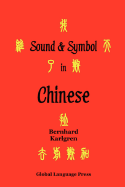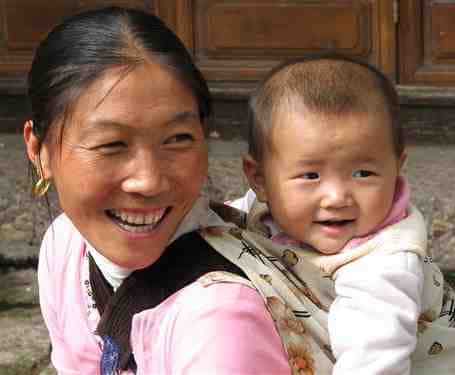Other than being a language that dates back centuries, Chinese has evolved to become one of the forefront languages to learn in today's world. But even before its evolution, the language was still a great influence in the ancient dynasties.
Modern-day Chinese has been classified as a Sino-Tibetan language which is actually the family for the majority of Asian languages. The Chinese component of Sino-Tibetan has been researched and two early stages of the language have been recognized. Bernhard Karlgren, Swedish sinologist, devoted 35 years to the phonological aspect of the Chinese language and how it has changed over the years. The two early stages identified were:
1) Archaic Chinese: (now usually called Old Chinese "OC"), spoken during the early Zhou dynasty at the beginning of the first millennium B.C.
2) Ancient Chinese: (now usually called Middle Chinese "MC"), spoken during the second half of the 1st millennium A.D
 The assigned period I was given is the Han dynasty (206 BCE - 220 CE) which falls into the Archaic Chinese stage. After researching more into Archaic Chinese, much of what's been learned is still widely disputed between linguists. Much of what has been researched of Old Chinese has been from bronze inscriptions (left) and oracle bones (right).
The assigned period I was given is the Han dynasty (206 BCE - 220 CE) which falls into the Archaic Chinese stage. After researching more into Archaic Chinese, much of what's been learned is still widely disputed between linguists. Much of what has been researched of Old Chinese has been from bronze inscriptions (left) and oracle bones (right).From those writings, linguists can theorize that the spoken language was not as inflected or tonal as modern-day Chinese.
Looking at old Vietnamese and Japanese around the same time also gave a good idea of how the language would have been spoken. Both of those languages do not have as much emphasis on tone and inflection.
The tones of modern-day Chinese did not exist in Old Chinese. It became more distinctive post-codas of Old Chinese and into the Middle Chinese stage.
As a Chinese-speaker, it is hard to imagine as well as try and speak without the use of tones. Which is the same reason why it is difficult for me to pronounce Japanese words. Japanese has more of a smooth, straight flow while Chinese is more 'bumpy' because of the inflections. The pin-yin has become the basic of the modern-day language it is hard to believe that Chinese once had no tonal system.
So what is it that makes this language so unique? The tonal system? The thousands of characters?
The Chinese language has so much history and has evolved through different stages since the beginning. Even today, multiple variations of the language are used all over the world. All because of the people who speak it. How they've passed the language down through generations. Chinese changed with time because of the people.
I think that is what makes any language unique. The speakers of any given language are what give it life. As long as people continue speaking it, the language will continue living, being passed down to next generations, and changing/evolving with the speakers.



Great post Shuan! I never thought of how much the Chinese language changed over the centuries until now. To me as a non Chinese speaker even the modern day language seem ancient, because of my ignorance of the region which gives me the preconceived idea that most of Chinese culture is largely unchanged from thousands of years ago. I think it's interesting how the perspective, cultural or otherwise, of oral history like a language (or any knowledge really) entirely determines our understanding of it.
ReplyDeleteI tried to pronounce some of Chinese words taught in the video, and I couldn't! The inflections are very difficult. I bet I'd have an easier time with archaic chinese! :P
ReplyDeleteShuan, I would be very interested in learning why tones were incorporated into the Chinese language. Could it have something to do with the time period? Like a certain ruler or a change in the culture? I hope to be able to research it myself and let you guys know what I find, but I was just wondering if you had any insight on that.
Both of the languages I know have experienced significant drifting and change in their history, as well. The addition of the tonal system, though, seems like a total revolution in every aspect of the language, and (I'm guessing here) it's a bigger change than anything that has happened to English or French. Then again, to be fair, I'm not an expert in linguistic history for any language. What I wonder is how was it received by the common people? Was it all imposed at once (it seems unlikely, but...)? Did each of the tones slowly get added in? Jake, I hope you do find time to research it, because I want answers, too!
ReplyDelete;)
Brett you pointed out that you didn't really know how much the english language had changed in you post but today in class as we looked at Beowulf we can see from that that much of what they used linguistically isn't used today like the bp letter which makes the th sound. I think I remember that correctly from class if not someone please correct me. We don't speak the same today even as we spoke 100 years ago languages change rapidly and words sometimes become no longer used unless we go back and look at old texts.
ReplyDeleteIt's always interesting when I try teaching anyone how to say something in Chinese. I've always wondered what causes the correct inflection and tone to come out.
ReplyDeleteJake: As far as why the tonal system was incorporated to the language, I tried looking around as to the purpose of the different pitches and inflections. I basically just found what I had known before. To distinguish between spoken words since many words are differentiated just by changing the pitch.
What I really like about Mandarin is there is specific word for everything. For example: grandma and grandpa. There are 4 words that represent each. There is a word for your grandpa on your dad's side. Another for grandma on dad's, then same for your mom's. There is a clear distinction. Same with older brother and sister.
In a conversation with friends, you may mention your sister doing something, then your friends would ask "is she older or younger?"
In Chinese, there are 2 words for sister for whether she is older or younger, no need to clarify after you mention because you already have just by mentioning her.
I noticed that many archaic, old languages have this type of clear distinction (so do many of modern-day languages too) so it makes me wonder about the English language and just..why? Our language really makes no sense and while there are rules to it, it essentially breaks all those rules with some type of exception here and there.